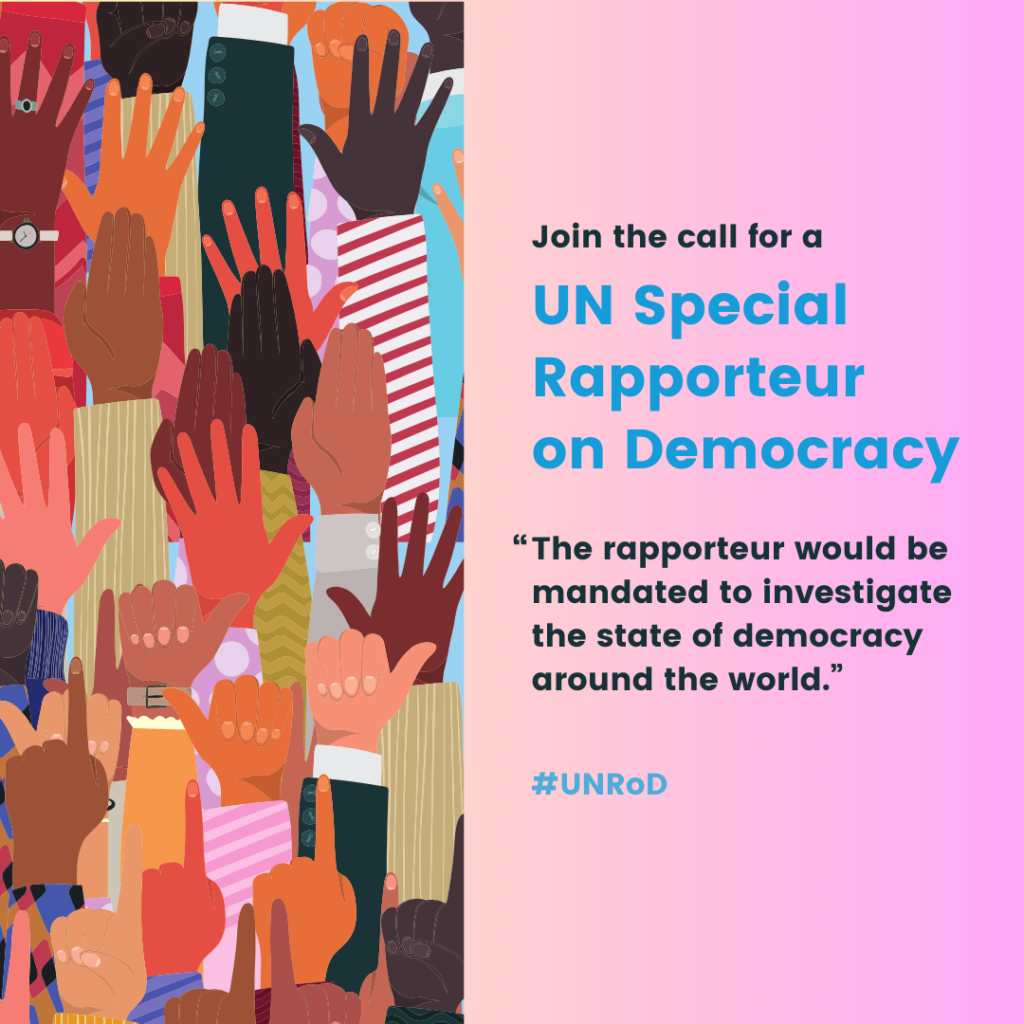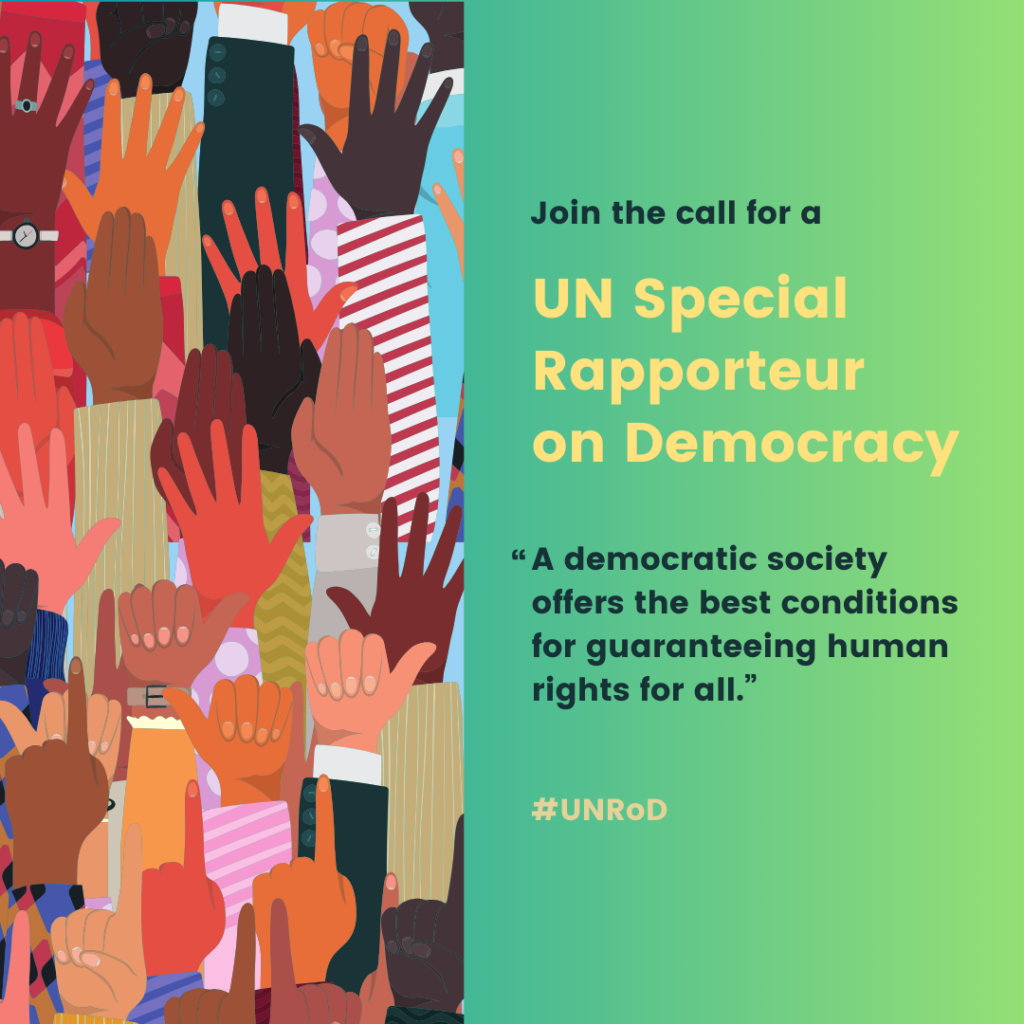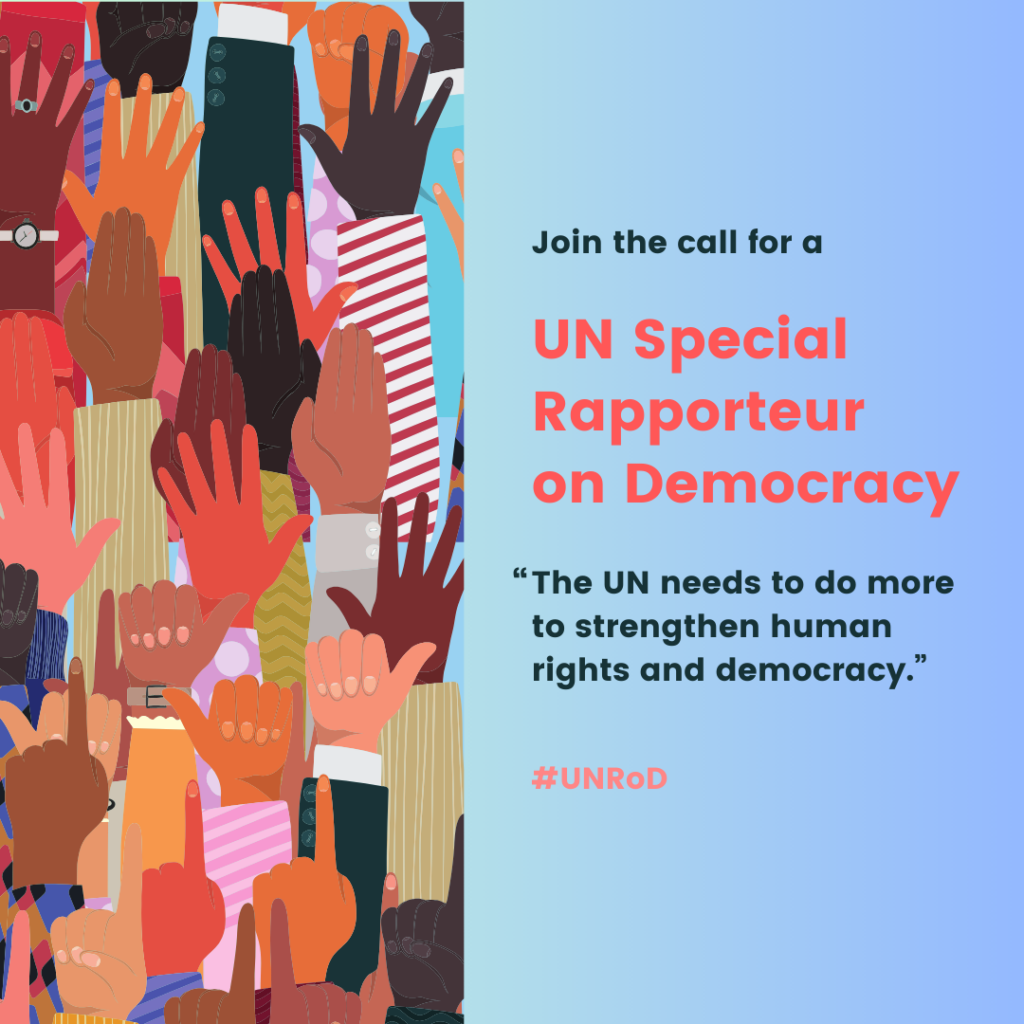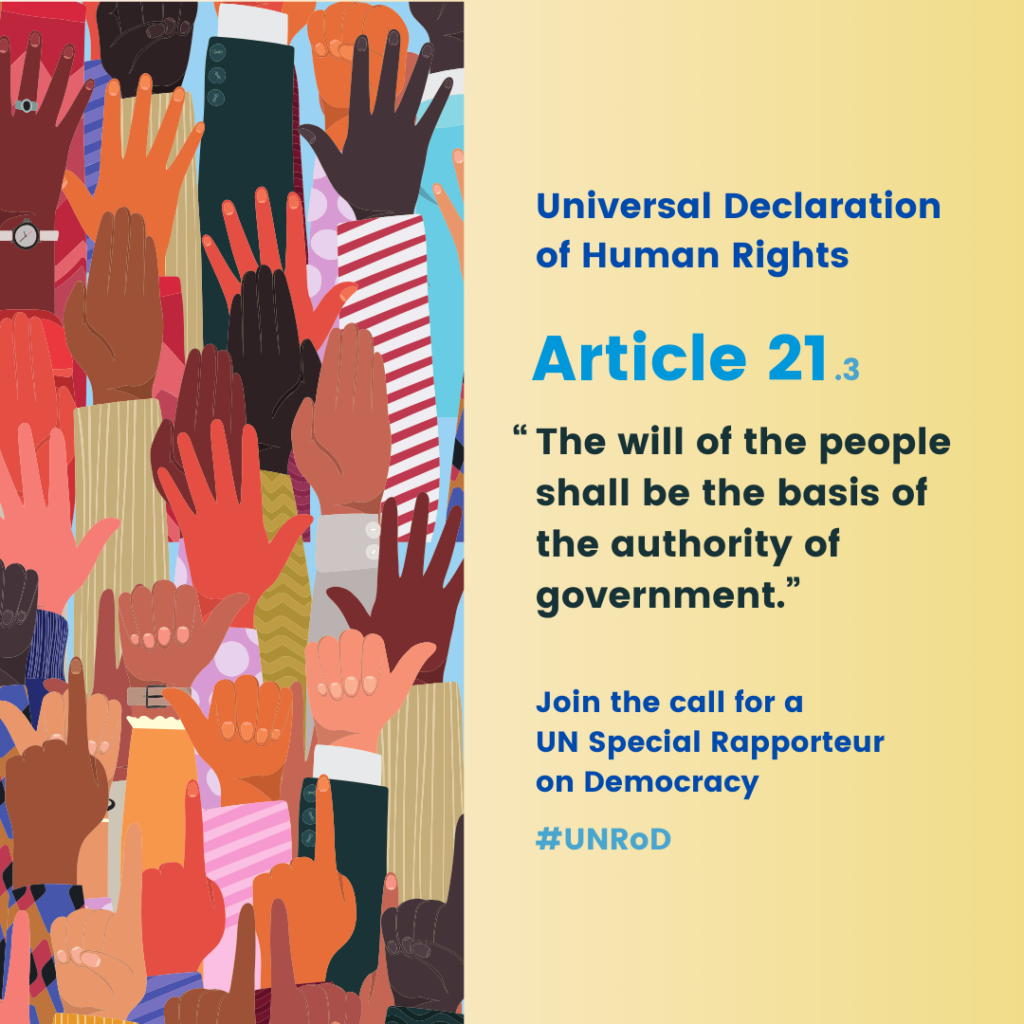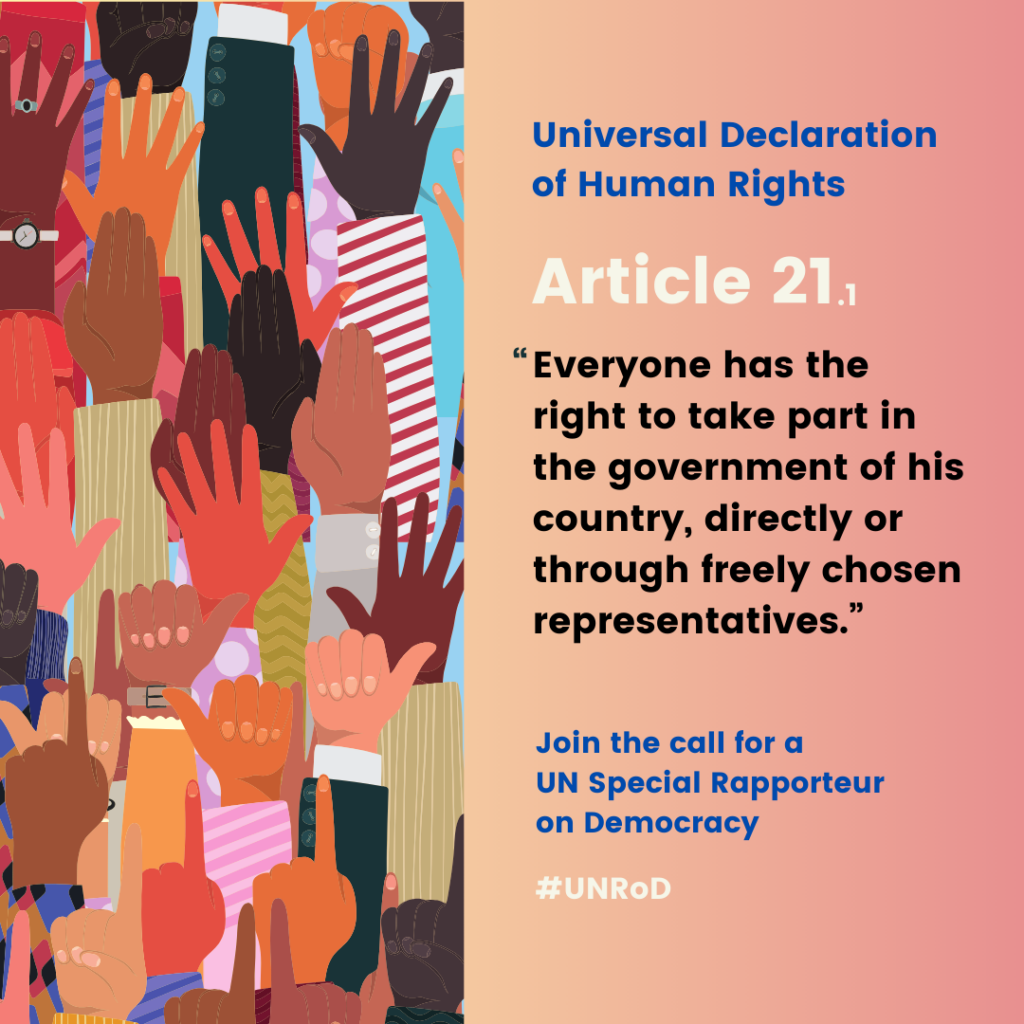Elbarlament signs call for a United Nations special rapporteur on democracy
Read the call below or in French/Spanish here.
Global reports on the state of democracy and human rights indicate that democracy is threatened and authoritarianism is on the rise. Civic space and freedoms are fiercely and increasingly restricted in many countries. In addition, democratic backsliding or a decline in the quality of democracy is occurring in newer as well as long-established democracies across all regions.
In this situation, the United Nations needs to do more to strengthen human rights and democracy. The undersigned organizations and individuals thus call for the creation of a new mandate by the UN’s Human Rights Council: a UN Special Rapporteur on Democracy (UNRoD).
Protecting human rights is a fundamental pillar of the UN and democracy is one of its core values. The opening words of the UN Charter, “We the Peoples,” imply support for democracy. They underscore the central democratic principle that public authority must derive from the will of the people.
A democratic society offers the best conditions for guaranteeing human rights for all, in particular minorities and excluded groups. At the same time, full implementation of human rights is a foundation of a democratic society. The UN needs to recognize the nexus between democracy and human rights and help further strengthen democratic governance. A UN Special Rapporteur on Democracy will serve this purpose.
The new mandate will be based on and guided by principles the UN enshrined in past and present resolutions and instruments, including the 1948 Universal Declaration of Human Rights, the 1966 International Covenant on Civil and Political Rights and the 1993 Vienna Declaration of the World Conference on Human Rights.
The Rapporteur would be mandated to investigate the state of democracy around the world from a broader perspective, going beyond, complementing and linking together analysis and data on specific issues being investigated by existing mandates set up by the Human Rights Council that deal with democratic rights such as freedom of opinion and expression; peaceful assembly and association; independence of judges and lawyers; freedom of religion or belief; minority issues; as well as human rights defenders.
The UNRoD would examine challenges and opportunities related to the realization of democracy. This includes, but is not limited to, constitutional and institutional arrangements such as checks and balances; effectiveness of parliaments; free, fair and competitive elections and election environments; political participation including of minorities and women; direct and deliberative mechanisms; as well as civic space and freedoms.
The Rapporteur, assisted by an independent advisory board, will gather, manage, and assess information, data and evidence as well as conduct and evaluate research. The mandate holder will engage, as appropriate, with Member States, other Rapporteurs, relevant stakeholders, and the public. In particular, the Rapporteur will seek input from citizens and civil society groups, acknowledging the crucial role of civil society in strengthening and protecting democracy. The Rapporteur will share observations on shortcomings but also on best practices and offer recommendations for improvement, thus serving an important oversight function, among other things.
On the 75th anniversary of the Universal Declaration of Human Rights and the 30th anniversary of the Vienna Declaration, we call on all governments that are committed to democracy to support the establishment of this new mandate under the auspices of the Human Rights Council. We call on like-minded organizations, policy-makers and individuals to join our cause and endorse this appeal.
